Understanding the Chile Heat Chart: Your Guide to Perfect Spice Control
Ever bitten into a chili expecting mild flavor only to feel like your mouth is on fire? You're not alone. The chile heat chart is your essential tool for navigating spice levels with confidence. Whether you're a home cook or professional chef, knowing exactly how spicy each pepper is prevents culinary disasters and unlocks incredible flavor possibilities.
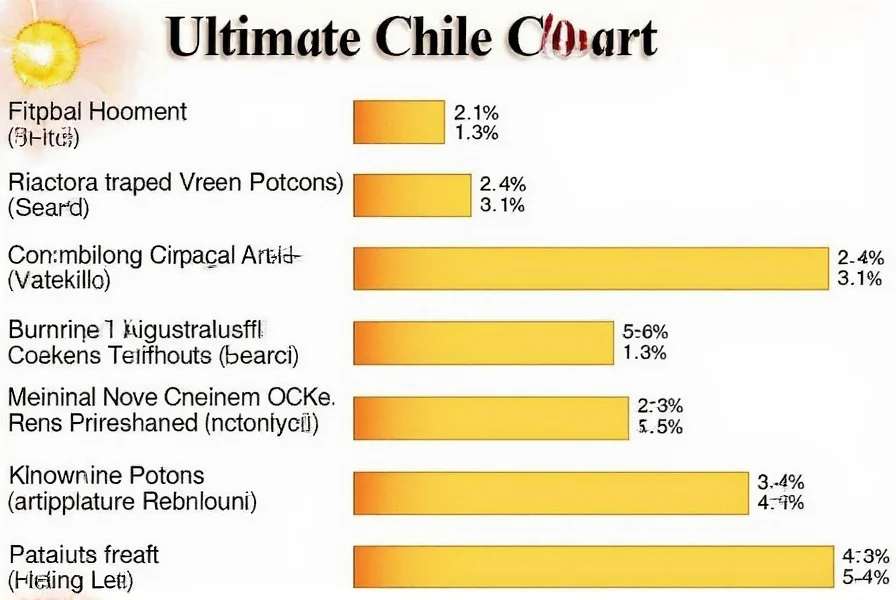
Decoding the Scoville Scale: How Pepper Heat Is Measured
The Scoville scale, developed by pharmacist Wilbur Scoville in 1912, measures capsaicin concentration in peppers. Capsaicin is the compound responsible for heat sensation. Modern labs use HPLC (High-Performance Liquid Chromatography) for precise measurements instead of the original human-taster method.
| Pepper Name | Heat Level (SHU) | Taste Profile | Ideal For |
|---|---|---|---|
| Bell Pepper | 0 SHU | Sweet, crisp | Salads, stuffing, mild dishes |
| Jalapeño | 2,500–8,000 SHU | Grassy, earthy | Salsas, nachos, pickling |
| Serrano | 10,000–23,000 SHU | Sharp, citrusy | Guacamole, soups, sauces |
| Hatch Green Chile | 1,000–8,000 SHU | Earthy, smoky | Enchiladas, chiles rellenos |
| Habanero | 100,000–350,000 SHU | Fruity, floral | Hot sauces, jerk marinades |
| Ghost Pepper (Bhut Jolokia) | ~1,000,000 SHU | Intense, smoky | Extreme spice challenges |
| Carolina Reaper | 1,400,000–2,200,000 SHU | Sweet, fruity, then FIRE | Spice competitions |
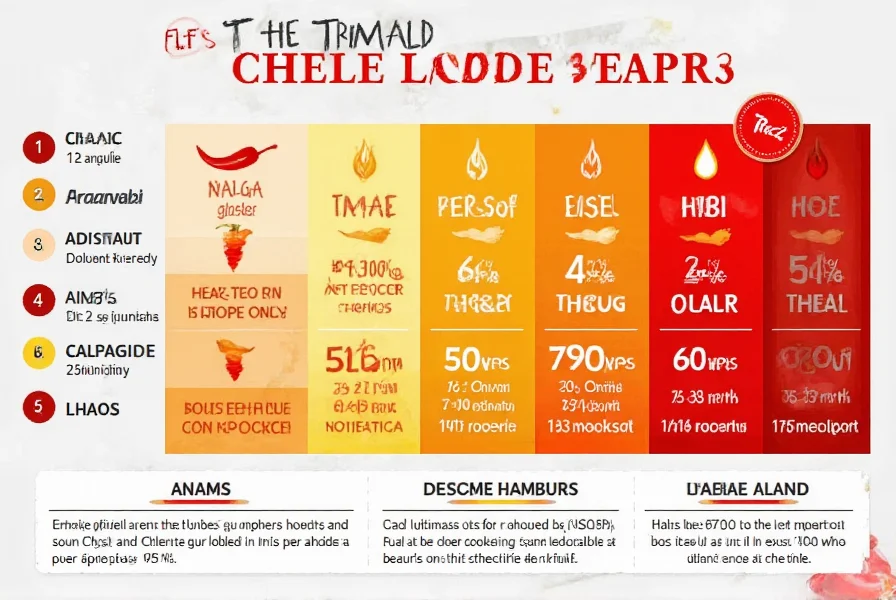
Proper Storage Techniques to Preserve Heat and Flavor
Storing chiles correctly maintains both their heat intensity and flavor profile. Here are expert storage methods:
- Refrigerate Fresh Chiles: Store whole fresh chiles in a paper bag inside the fridge crisper drawer for up to two weeks
- Freeze for Long-Term: Wash, chop, and freeze in ziplock bags for up to six months. They'll go straight into recipes without thawing
- Proper Drying: Use a dehydrator or oven at 150°F (65°C) until brittle. Store dried peppers in airtight containers away from sunlight
- Chile Oil Infusion: Create ready-to-use spicy oil by infusing with sliced hot peppers. Refrigerate for up to one month
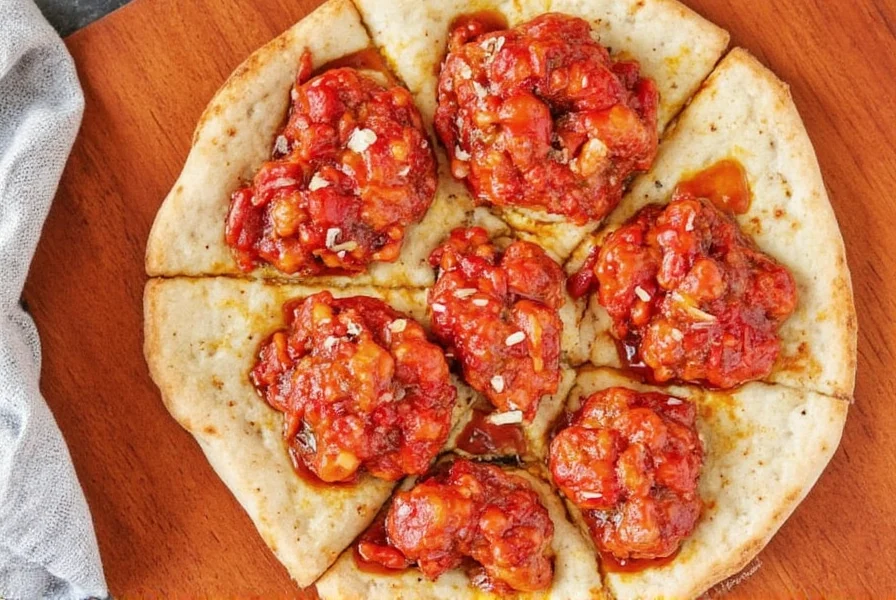
Smart Usage Techniques for Every Heat Level
Use these expert tips to control spice levels in your cooking:
- Remove Seeds and Membranes: The white placenta (not seeds) contains the highest capsaicin concentration. Scrape out membranes for maximum heat reduction
- Cooling Methods: Add dairy (yogurt, sour cream), sugar, or acid (lime juice, vinegar) to balance excessive heat
- Toasting Dried Chiles: Lightly toast in dry skillet before grinding to enhance flavor complexity
- Blending Heat Levels: Combine high-heat peppers like habaneros with milder varieties like poblanos for balanced flavor profiles
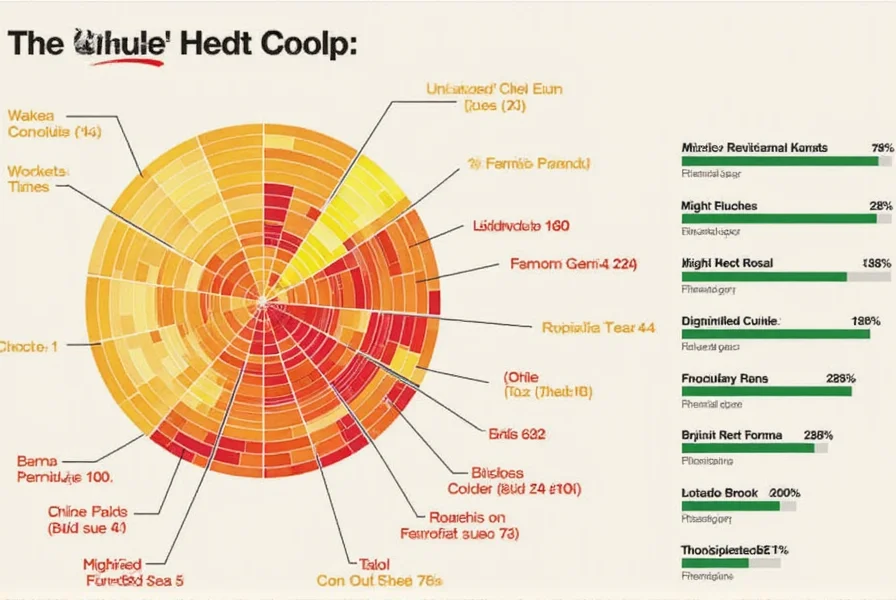
Choosing the Right Chile: A Practical Buying Guide
Make informed decisions when shopping for chiles with this expert guide:
| Pepper | Best Feature | Who Should Buy | Occasion |
|---|---|---|---|
| Ancho (Dried Poblano) | Rich, sweet, smoky flavor | Mild-medium lovers | Mole sauce, stews |
| Chipotle (Smoked Jalapeño) | Smoky depth with medium heat | BBQ fans, taco lovers | Marinades, soups |
| Guajillo | Versatile, berry-like notes | Home cooks, beginners | Red sauces, salsas |
| Thai Bird's Eye | Explosive heat in tiny size | Pro chefs, heat-seekers | Pad Thai, curries |
| Carolina Reaper Flakes | World's hottest spice | Extreme spice lovers | Challenge cooking |
When buying fresh chiles, look for smooth, unblemished skin and vibrant color. Avoid soft spots or wrinkles. For dried chiles, ensure they're flexible and not brittle.
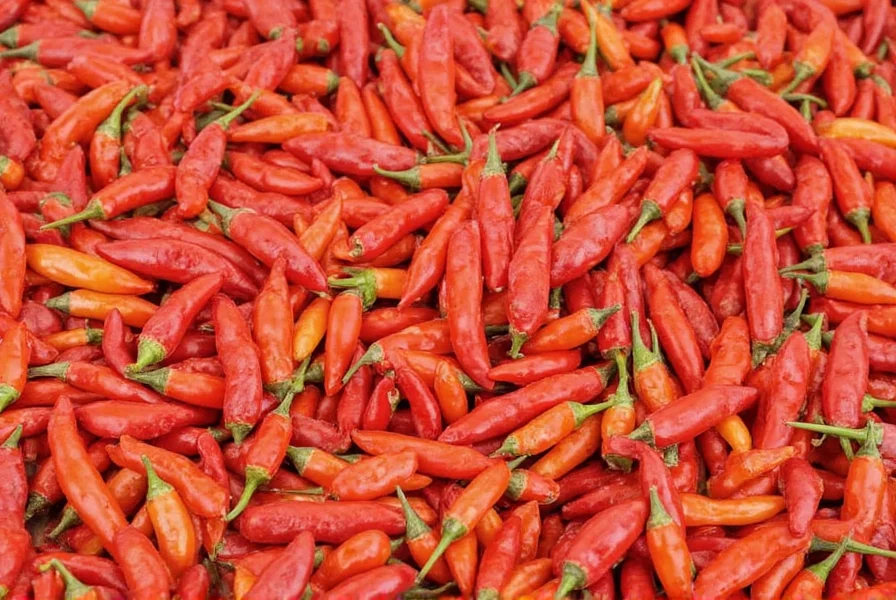
Expert Answers to Common Chile Heat Questions
What does SHU mean on the chile heat chart?
SHU stands for Scoville Heat Units, the measurement system for pepper spiciness. Modern labs use HPLC (High-Performance Liquid Chromatography) for precise measurements instead of the original human-taster method. Bell peppers register 0 SHU while Carolina Reapers can exceed 2 million SHU.
How can I reduce spiciness if I've added too many hot chiles?
Immediately add dairy products like yogurt or sour cream, which contain casein that breaks down capsaicin. Acidic ingredients like lime juice or vinegar can also neutralize heat. For cooked dishes, incorporate starches like rice or beans to absorb spice. Never drink water—it spreads capsaicin oil rather than dissolving it.
Are the seeds the hottest part of a chili pepper?
No—this is a common misconception. The placenta (white membrane surrounding seeds) contains the highest capsaicin concentration. Seeds indirectly become spicy by touching this membrane. When preparing chiles, scrape out both seeds and the white ribs for maximum heat reduction. Always wear gloves during handling to prevent capsaicin transfer to sensitive skin.
How long do dried chiles maintain their heat potency?
Properly stored dried chiles retain peak heat and flavor for 6-12 months in airtight containers away from light and moisture. For longest shelf life, store in the freezer where they'll maintain heat for up to 2 years. Check flexibility—brittle, crumbling chiles indicate degraded quality.
Is it safe to handle extremely hot peppers like Carolina Reapers?
Exercise extreme caution with peppers above 500,000 SHU. Always wear nitrile gloves (latex isn't sufficient) and eye protection. Work in well-ventilated areas as capsaicin vapors can cause breathing difficulties. If skin contact occurs, wash immediately with oil (like vegetable oil) before soap and water. Never consume pure extracts or powders without professional guidance.
Master Your Spice Game: Confidence in Every Dish
Understanding the chile heat chart isn't just about avoiding tears—it's about unlocking new dimensions of flavor and control in your cooking. With these expert storage techniques, usage tips, and buying guidance, you're well on your way to becoming a true chile connoisseur.
Next time you reach for ghost pepper flakes or toss Hatch chiles on the grill, remember: spice is power. And now, you've got the knowledge to wield it like a true chef.
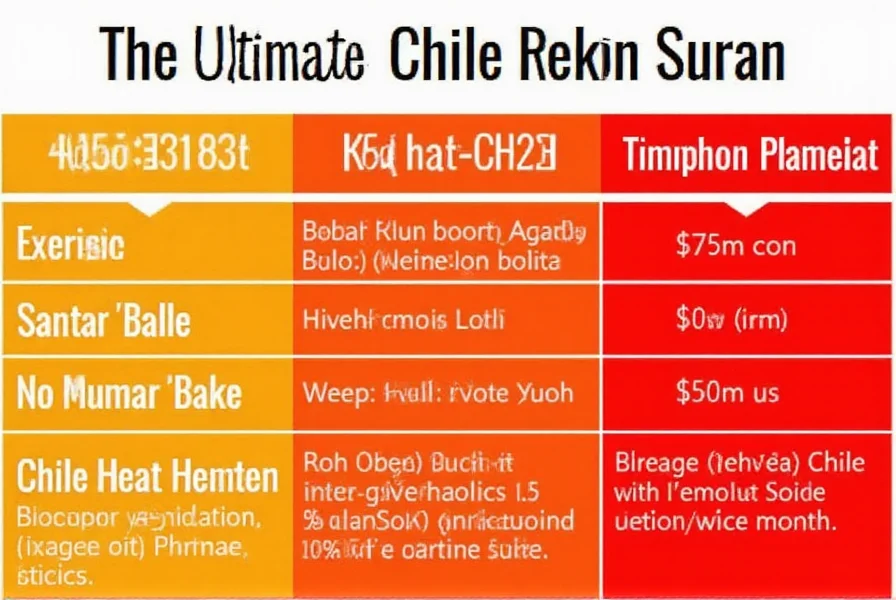

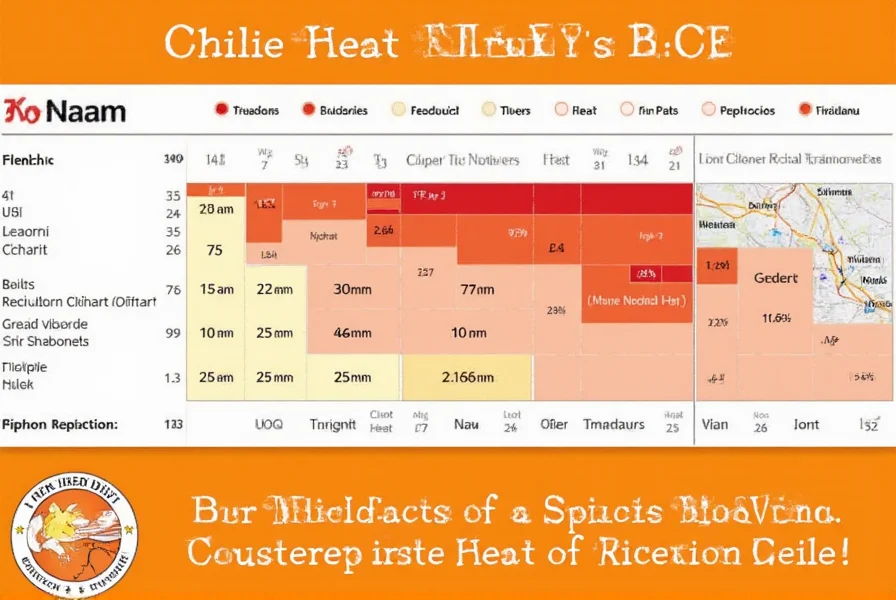









 浙公网安备
33010002000092号
浙公网安备
33010002000092号 浙B2-20120091-4
浙B2-20120091-4